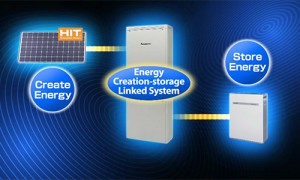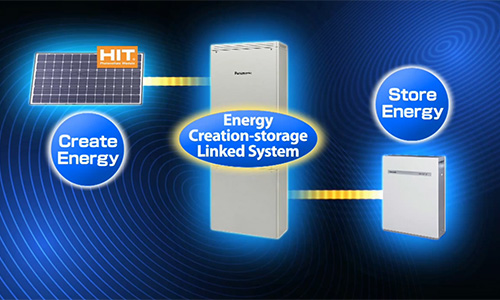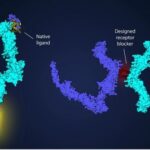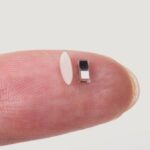Panasonic is the first company out of the gate to begin mass producing home energy storage systems. For those of you who have a desktop PC you may already have a sense of what uninterruptible power supplies can do in the event of a power failure. Others may have invested in home generators. But what Panasonic is producing is storage systems that kick in when the Sun is no longer out.
Panasonic has standardized on lithium-ion battery packs capable of generating 1.35 kilowatt hours of energy. Each battery pack comes with a battery management system to monitor charging and discharging. Germany is Panasonic’s first market. That’s because Germany currently is leading the world in the use of renewable energy sources with 20% of the total electricity consumed within the country coming from wind and solar sources.
During the month of May this year, on one very sunny day, solar panels generated almost 75% of daily electricity demand. On May 28, solar power hit 22,000 megawatts per hour while the nation consumed 28,000 megawatts in total. Much of the power being generated by solar arrays in Germany is on the grid but more and more residential solar units are popping up on homes around the country that can feed the grid or operate autonomously. And Germany is not the only country where solar power is happening. Australia is fast tracking the technology for utilities and private residences. In the United States, California is seeing rapid adoption. Spain and Portugal are following suit as are China and Japan. In fact, half of the new power generation capacity development across our planet in the past year has come from renewable sources, largely solar and wind.
But renewables like solar and power suffer from highly variable conditions for sustainable energy production. The Sun sets. The wind dies. That’s where storage systems come in. They can charge up when renewable energy systems are operating and discharge when not. Panasonic’s storage system, called the Energy Creation-Storage Linked System for Home Use, manages residential electricity requirements around the clock providing a stable power supply. It includes photovoltaic panels, a power station and a lithium-ion battery stack. The power station features an inverter that converts direct current generated by the solar panels or battery into alternating current for operating home appliances and electronic devices. The home lithium-ion battery system has an estimated 5,000 load cycle and a capacity of 1.35 kilowatt hours. The storage system can provide power to a residential unit for two days when fully charged.
The system can be used both on or off the grid. In an on-the-grid installation excess solar energy generated during the day is sold to the local utility and at night the batteries provide supplemental power to meet residential demand. The battery pack recharges overnight when utility rates are at their lowest. Off the grid, the system is a self-contained power generation system with excess solar power topping up the batteries during the day and discharging through the night to provide power when the solar arrays are inoperative. Power consumption can be tracked remotely using its wi-fi interface on mobile devices and televisions within the home.

This is not Panasonic’s first renewable-storage system. It has been working with a German energy company to develop the E3/DC power management and storage system which went on sale this year. The E3/DC system features 4 kilowatt hour capacity considered sufficient for the average German home. The Energy Creation-Storage Linked System for Home Use may fulfil the need for renewable energy solutions for multi-residential condominium and apartment units.









